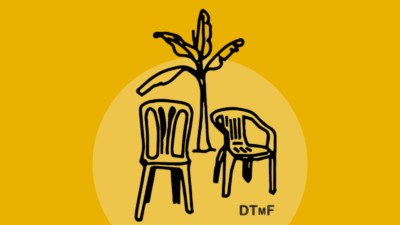Imagine a city launching a transportation campaign in Spanish. The grammar is correct, but it overlooks local expressions, relevant schedules, and trusted community channels.
The result: Low participation and citizen frustration.
What was missing wasn’t translation, but cultural clarity—the ability to adapt the message to the community’s reality.
🤝
From Translation to Trust
Translation alone is not enough.
A health notice, a transportation alert, or an educational campaign can lose power when it’s reduced to a word-for-word conversion.
Transcreation—adapting tone, context, and cultural references—makes public communication clearer, more relevant, and, most importantly, it builds civic trust.
🕵️♀️
Research-Driven Communication
Cultural clarity is also built on data.
An effective public communication strategy requires both qualitative and quantitative insights:
- Community surveys to understand perceptions
- Program participation and attendance data
- Active listening in digital and community channels
Only then can messages be designed to reach the people they’re meant to serve.
🚀
Aligned with the Public Mission
Public communication is not just marketing—it’s part of every agency’s mission.
When it comes to health, safety, education, or mobility, cultural clarity becomes a tool for equity.
A message that is clear and culturally adapted doesn’t just inform: it saves lives, improves access to resources, and strengthens civic participation.
📊
Reliable and Measurable Communications
In the public sector, every effort must be measurable and meet procurement standards.
A strategy grounded in cultural clarity not only fulfills equitable access and participation goals, but also delivers concrete metrics:
- Reach within Hispanic and multicultural communities
- Program and service participation rates
- Institutional reputation impact
🪷
Case Example: Mental Health with Cultural Clarity
A strong example is the mental health campaign we developed for AdventHealth and Heart of Florida United Way.
The challenge: Adapt “Be a Mind Leader” for the Hispanic market without falling into literal translation that would lose cultural context.
Through a process of transcreation, “Lidera ConscienteMENTE” was born: A Spanish-language version designed to resonate with Hispanic millennials through a new name, culturally relevant messaging, and authentic visuals.
The result: A campaign that felt closer to the community, opened conversations around mental health, and built trust in a space where dialogue on this topic is still a challenge.
👉 Explore the entire case study in our portfolio.
🐥
Conclusion
Cultural clarity is not an add-on. It’s the difference between checking a box and truly fulfilling the public mission of informing, protecting, and serving.
In a state like Florida—where cultural diversity is the norm—agencies that communicate with clarity are the ones building lasting bridges with their communities.
👉 Ready to take your public communication to the next level?
At BOLD, we help agencies craft messages that don’t just inform—they unite.





